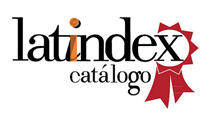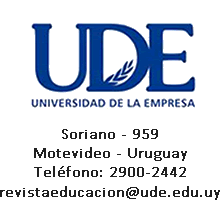Análise do fortalecimento da gestão de um centro educacional de Manaus/AM, durante o ano de 2023
DOI:
https://doi.org/10.47966/avan-inv.2024.111101-124Palavras-chave:
gestão educativa, inovação pedagógica, desenvolvimento profissionalResumo
O ano de 2023 marcou um período de fortalecimento significativo na gestão de um centro educativo em Manaus, AM. Este processo de fortalecimento é o resultado de uma série de iniciativas estratégicas e ações implementadas ao longo do ano, com a finalidade de melhorar a qualidade do ensino, a gestão administrativa e a participação da comunidade escolar. Nesse contexto, é fundamental analisar os principais aspectos que contribuíram para esse avanço. A pesquisa se baseou em uma abordagem qualitativa com um paradigma descritivo. Foram estabelecidos critérios específicos para a seleção de materiais, incluindo relevância temática, rigor acadêmico e atualidade. Foram incluídos trabalhos que abordassem diretamente a gestão educativa e seu fortalecimento, selecionando estudos publicados em revistas científicas de alto impacto e livros de autores reconhecidos na área. Foram priorizadas pesquisas publicadas nos últimos dez anos, sem excluir textos clássicos que continuam sendo fundamentais para a compreensão teórica. Quanto aos critérios de exclusão, foram descartados materiais que não se centravam na gestão educativa ou cuja relevância para o contexto específico de Manaus era limitada, assim como estudos que não cumpriam com os padrões mínimos de rigor metodológico e acadêmico. A combinação desses critérios garantiu uma base teórica robusta e pertinente para a análise da gestão educativa no centro de Manaus. Entre os aspectos que contribuíram para o avanço do centro educacional em Manaus em 2023 estão a implementação de práticas de gestão participativa, o investimento em programas de capacitação e desenvolvimento profissional para professores e gestores e a adoção de tecnologias educacionais
Referências
Creswell, J. W. (2013). Research Design: Qualitative, Quantitative, and Mixed Methods Approaches. Thousand Oaks, CA: Sage.
Fernández, M. (2018). La importancia de la metanoia en la gestión educativa. Revista Internacional de Educación y Desarrollo, 5(1), págs. 60-75.
García, A. (2019). La metanoia: un cambio profundo y transformador. Editorial Educación y Cambio, págs. 33-45.
Giroux, Henry. "Education and the Crisis of Public Values: Challenging the Assault on Teachers, Students, & Public Education." 2011.
González, E. (2022). La importancia del crecimiento personal en la cultura organizacional escolar. Revista de Investigación Educativa, 11(1), págs. 60-75.
Lima, R., & Castro, M. (2022). "Tecnologías Educativas y Gestión Escolar: El Potencial de las Herramientas Digitales para la Mejora de la Educación." Revista Tecnología y Educación, 15(2), 110-125.
Oliveira, A., & Santos, L. (2019). "Desafíos de la Gestión Escolar en la Amazonía: Un Estudio de Caso en una Escuela Pública de Manaus." Revista de Educación Pública en la Amazonía, 5(2), 45-58.
Pérez, J. (2020). Reflexiones sobre la metanoia en el ámbito educativo. Revista de Investigación Educativa, 10(2), págs. 45-56.
Pita, B.; Y., & Noemí, Y. (2021). Organizaciones Educacionales Inteligentes: Una Investigación de sus Aspectos Funcionales. Revista Referida del CIEG - Centro de Estudios de Investigación y Gestión, 48, 219-231.
Rodríguez, M. (2022). Promoción de la equidad y la diversidad en la cultura organizacional escolar. Revista Internacional de Educación, 7(2), págs. 100-115.
Sánchez, L. (2021). Metanoia: el camino hacia la transformación personal y organizacional. Revista de Psicología Organizacional, 15(3), págs. 70-85.
Silva, J., & Almeida, M. (2020). "El Papel de los Líderes Escolares en la Gestión Educativa: Desafíos y Perspectivas." Revista de Gestión Educativa, 10(1), 78-92.
Smith, R. (2022). Cultura escolar y aprendizaje colaborativo. Revista de Educación y Desarrollo, 8(2), págs. 40-50.
Yin, R. K. (2014). Case Study Research: Design and Methods. Thousand Oaks, CA: Sage.
Arquivos adicionais
Publicado
Edição
Seção
Licença
Copyright (c) 2024 Simoneide Costa da Silva

Este trabalho está licenciado sob uma licença Creative Commons Attribution 4.0 International License.
Política para revistas de acceso abierto
Los autores/as que publiquen en esta revista aceptan las siguientes condiciones:
a. Los autores/as conservan los derechos de autor y ceden a la revista el derecho de la primera publicación, con el trabajo registrado con la licencia de atribución de Creative Commons (CC-BY), que permite a terceros utilizar lo publicado siempre que mencionen la autoría del trabajo y a la primera publicación en esta revista.
b. Los autores/as pueden realizar otros acuerdos contractuales independientes y adicionales para la distribución no exclusiva de la versión del artículo publicado en esta revista (p. ej., incluirlo en un repositorio institucional o publicarlo en un libro) siempre que indiquen claramente que el trabajo se publicó por primera vez en esta revista.












 This work is licensed under
This work is licensed under 
